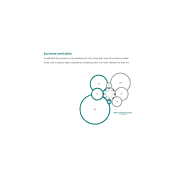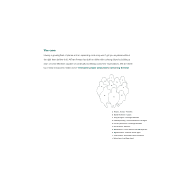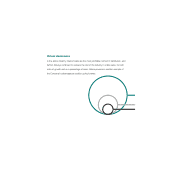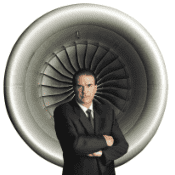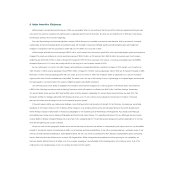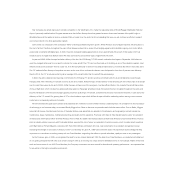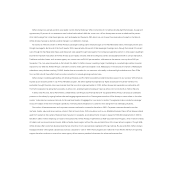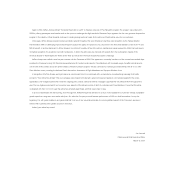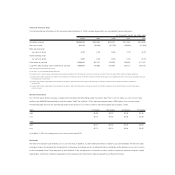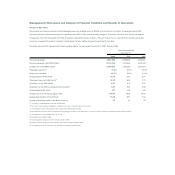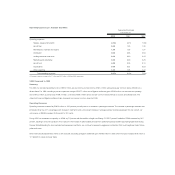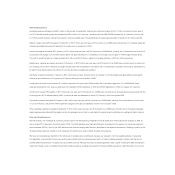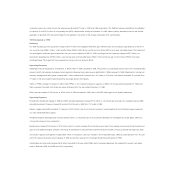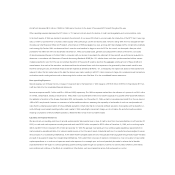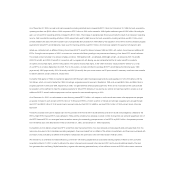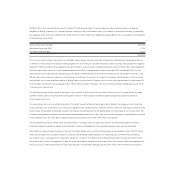Airtran 2000 Annual Report Download - page 18
Download and view the complete annual report
Please find page 18 of the 2000 Airtran annual report below. You can navigate through the pages in the report by either clicking on the pages listed below, or by using the keyword search tool below to find specific information within the annual report.
Your Company also acted vigorously to provide competition in the Washington, DC, market by requesting slots at Ronald Reagan Washington National
Airport. I personally testified before Congress several times that AirTran Airways should be granted access to these slots because of the public’s right to
affordable fares and the quality air service we deliver. While, at press time, the verdict is still out regarding this issue, we will continue our efforts to expand
our low-fare network into other appropriate markets.
Cost-control is a critical part of the Company’s efforts to develop profitable long-term growth. AirTran Airways’ second largest expense, following labor, is
the cost of jet fuel. Therefore, throughout the year, AirTran Airways entered into a series of fuel hedging agreements to facilitate ongoing cost-control efforts
and provide consistently affordable fares. In 2000, the airline increased hedging agreements to cover approximately 50 percent of first quarter 2001 fuel
needs at a price no higher than $29 per barrel. We have continued to pursue these types of agreements into 2001.
At year-end 2000, AirTran Airways had taken delivery of the first 16 of 50 Boeing 717-200 aircraft, a schedule that began in September 1999 when we
were the youngest airline ever to be a launch customer for a new aircraft. The 717 has more than lived up to its billing as one of the industry’s quietest, most
efficient and economical aircraft–even at a year old. In its first complete year of service it has already helped save us more than $3 million in fuel costs alone.
The 717 enables AirTran Airways to keep fares low even as the cost of fuel continues its dramatic rise. Anticipated to burn fuel 18 percent more efficiently
than the DC-9, the 717 is actually performing at an average of 24 percent better than the aircraft they are replacing.
In 2000, the airline obtained new financing commitments for 20 Boeing 717 aircraft, securing committed funds for all aircraft deliveries made through
February 2002. With 16 Boeing 717 aircraft in service by the end of 2000, AirTran Airways will take delivery of the remaining 34 of the initial order of 50 aircraft
over the next three years. By the end of 2003, AirTran Airways will have one of the youngest, most fuel-efficient fleets in the industry. The aircraft has a state-
of-the-art flight deck which includes two global positioning systems. Passenger amenities include 100 percent fresh air circulated throughout the cabin, and
EasyFit overhead bins with the same storage capacity per person as Boeing’s 747 aircraft. Completion factors also improved for the airline, in part due to the
efficiency of the 717 aircraft. Our growing fleet of 717s is the foundation upon which AirTran Airways will build a leadership position serving cost-conscious
customers in an expanding network of markets.
We were fortunate this past year to attract several talented new members to join the AirTran Airways’ Leadership Team. As a testament to the importance
of technology in our business today, we recruited Rocky Wiggins from Sabre to become vice president and chief information officer. Prior to Sabre, Wiggins
served at US Airways. Guy Borowski, formerly of Canadian Airlines, was appointed vice president of maintenance and engineering, and will oversee line
maintenance, heavy maintenance, maintenance planning and quality control operations. Previously with Atlas Air, Stan Gadek became senior vice president
of finance and chief financial officer of AirTran Airways. Prior to Atlas Air, Gadek held related positions at Northwest Airlines and Continental Airlines. Thomas
Kalil, an industry veteran, previously with Continental Airlines, assumed the role of senior vice president of customer service, which includes airport operations
and inflight service. Richard Magurno, previously with Trans World Airlines and Eastern Air Lines, was named senior vice president and general counsel.
Increasing the strength of our board of directors, former U.S. Secretary of Labor W.J. (Bill) Usery joined the board. His experience and knowledge will help
us pursue our commitment to working closely with our Crew Members, supporting their efforts to provide affordable, quality air travel to our passengers.
As the Company grew in 2000, we recognized the need for a new mission statement. With the help of our Crew Members, we created a bold statement
of our guiding principles that will unify us as a team and grow with us as we bring our unique brand of affordable service to more people. Thanks to the hard
work and commitment of our 4,000 Crew Members, the Company continues to set new records for financial and operating performance—an impressive feat
for any airline in this highly competitive environment.





